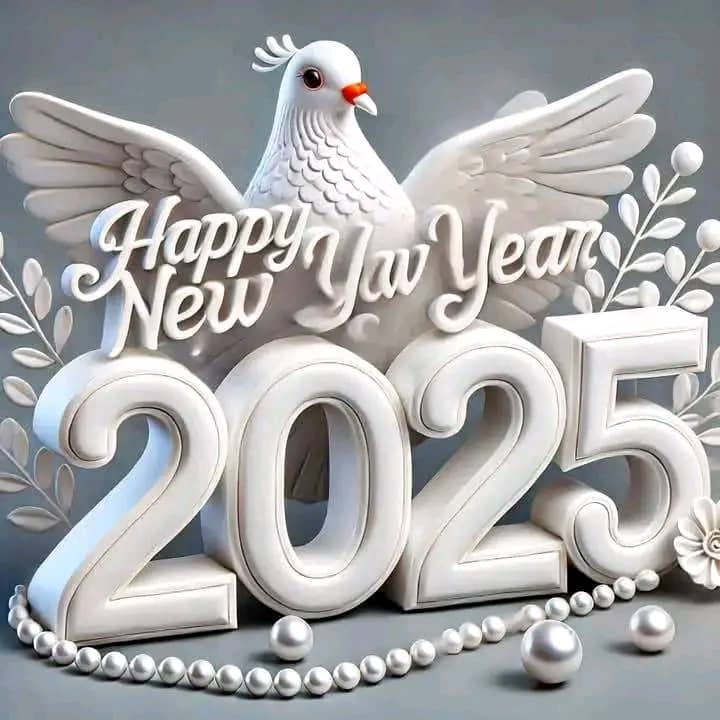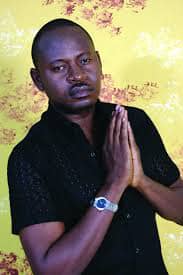THE GREAT NEW YEAR MIRAGE: A ….. Tradition in the Continuum of Reality


As the clock strikes midnight on December 31st, cheers erupt, fireworks light up the skies, and “Happy New Year” echoes across the globe. It is a moment steeped in tradition, a cultural ritual repeated year after year with unwavering fervour. But amidst the confetti and celebratory toasts, an unspoken question lingers: What, truly, is new about the so-called “New Year”?
The concept of the New Year, heralded as a time of renewal and fresh beginnings, offers little solace when juxtaposed against the stark realities of our world. Across nations, the challenges that defined the old year stubbornly persist. Poverty remains pervasive, with global indices showing a deepening divide between the rich and the poor. Millions face starvation, while others languish under crushing debts and stagnant wages. For those living on the margins, January 1st does not signify a new dawn but a continuation of an unending struggle.
*A Tradition Built on Hope, Not Change*
The tradition of marking a New Year is rooted in ancient civilizations, from the Babylonians who celebrated Akitu to the Romans who honored Janus, the god of transitions. These rituals carried profound significance, offering hope for bountiful harvests and personal prosperity. Today, the New Year has been reduced to a symbolic exercise, a time for resolutions that are rarely kept and reflections that are quickly forgotten.
Yet, the world remains eerily static. The geopolitical tensions that shaped the headlines of the past year persist. Wars rage on, displacing millions and sowing despair. Political and institutional systems often struggle to address the needs of their citizens effectively. Greed and oppression remain unrelenting forces, as the powerful trample the weak in pursuit of profit and control.
The global stage is a stark reminder of this inertia. Climate change continues to wreak havoc, with extreme weather events displacing entire communities and threatening livelihoods. Despite urgent warnings from scientists and activists, major international efforts often stall in negotiations that yield limited actionable outcomes. Rising sea levels, forest fires, and droughts are the grim backdrop to our celebrations of “newness.”
In the realm of geopolitics, conflicts across various regions show no signs of resolution. The humanitarian crises born of these wars leave millions without homes, food, or hope. The global refugee crisis has reached unprecedented levels, with international organizations stretched to their limits and some nations struggling to balance security and humanitarian assistance. Multilateral organizations, tasked with maintaining global peace and stability, frequently find themselves constrained by competing priorities and interests.
Economic inequalities have only deepened, even in the wake of a pandemic that underscored the vulnerabilities of the global system. While a small fraction of individuals amass unprecedented wealth, billions struggle to afford basic necessities. Inflation continues to erode the purchasing power of ordinary citizens, and the cost of living crisis has sparked protests worldwide, from Europe to Latin America. The promises of economic recovery ring hollow for those still grappling with joblessness and food insecurity.
Nowhere is this stasis more evident than in Africa, and especially in Nigeria, where the promise of progress continues to be a mirage. Over the past two years, Nigeria, Africa’s most populous nation, has faced a cascade of unresolved challenges. Economic instability, fueled by inflation and a weakened naira, has left millions in deeper poverty. Unemployment remains staggeringly high, with youth bearing the brunt of a system that offers little hope or opportunity. Corruption and inefficiencies in resource management siphon public funds that could otherwise uplift the populace. Public infrastructure is dilapidated, and basic services like healthcare and education remain out of reach for many.
The continent at large mirrors Nigeria’s struggles. Across Africa, millions still lack access to clean water, reliable electricity, and adequate food. Challenges in governance and management perpetuate cycles of poverty and underdevelopment. In the face of these glaring issues, the celebration of a “New Year” feels hollow—a momentary distraction from the harsh realities that have changed little over decades.
*The Illusion of Renewal*
The notion of a New Year suggests a clean slate, a chance to leave behind the old and embrace the new. But life does not operate in such neat cycles. January 1st is not a magical threshold that transforms societies or eradicates the burdens of the past. The price of corn does not drop overnight; wages do not suddenly rise. The struggles of December 31st persist into the first day of January and beyond.
For Nigerians, this is particularly evident. The past two years have seen the price of basic commodities skyrocket, while wages have remained stagnant. Insecurity continues to plague the nation, with kidnappings, terrorism, and communal violence undermining any sense of safety. Farmers struggle against environmental challenges and insufficient support, exacerbating food insecurity. Ambitious reforms and policies often fall short of delivering tangible benefits for the average citizen. For many, the New Year is not a time of hope but a grim reminder of unchanging realities.
Across the globe, the systems and organizations meant to protect and uplift humanity often falter. Public health initiatives face ongoing criticism for their handling of global crises, from inequities in vaccine distribution to gaps in emergency preparedness. Trust in institutions and industries remains fragile, as profit motives overshadow equitable solutions. Meanwhile, human rights challenges, including forced labor and restrictions on freedoms, persist in many regions.
*Life as a Continuum*
To see the New Year as a fresh beginning is to ignore the continuum of life. The challenges we face—as individuals and as a global community—do not adhere to a calendar. They are ongoing struggles, requiring sustained effort and collective action. True change is not bound by the turning of a page on the calendar but by the resolve to address the root causes of our issues.
Instead of placing undue significance on the New Year, we might consider a more grounded perspective. Life is not divided into neatly compartmentalized years but is a continuous journey, shaped by our actions and choices every day. Rather than celebrating an abstract concept of “newness,” we should focus on tangible efforts to create a better world—not just for one day, but for all days.
*Conclusion: The Mirage of Newness*
The New Year, for all its pomp and tradition, is ultimately a mirage. It offers the illusion of change while the realities of life remain steadfast. For Africa, and particularly Nigeria, this mirage is even starker. Globally, the unresolved crises—economic inequality, climate change, conflicts, and systemic inefficiencies—only underscore the futility of pinning hopes on a calendar shift. The systemic failures that have persisted for years show little sign of abating, and the so-called “New Year” offers no relief. True progress demands that we confront this illusion, acknowledging that life is a continuum, not a series of resets. Only by embracing this perspective can we hope to break free from the cycle of unfulfilled resolutions and unmet expectations. Let us not view change as bound to a calendar date; the opportunity to act is ever-present.
*Written by mo.agbaje, a freethinker and poet. Follow on Instagram: @mo.agbaje.*



